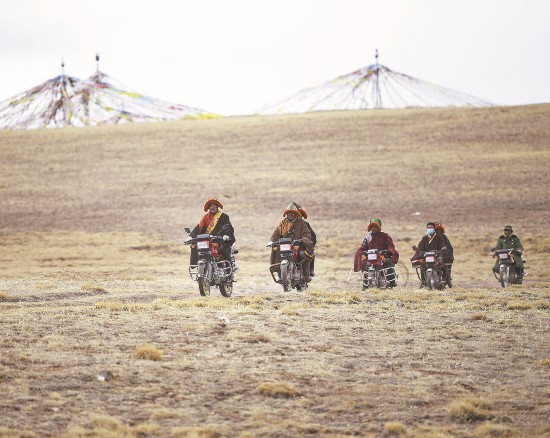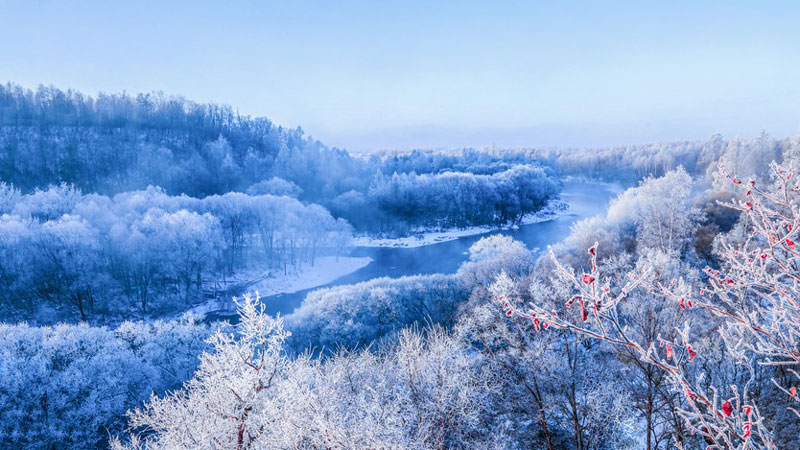Draft rules aim to conserve ecosystems

Environmental protection workers patrol on motorbikes in Qumarleb county, Qinghai province, on April 21. ZHANG LONG/XINHUA
China plans to introduce more measures for wildlife and ecosystem conservation on the Qinghai-Tibet Plateau through national legislation, according to a draft law on environmental conservation on the plateau.
It was submitted to the Standing Committee of the National People's Congress, the country's top legislature, for a second reading on Tuesday.
Based on suggestions collected from national legislators, government bodies, enterprises, experts and the public after the first reading in late August, the NPC's constitution and law committee proposed including more measures in the draft to enhance environmental protection and remediation, as well as biodiversity conservation, according to Li Fei, chairman of the committee, on Tuesday.
Following on from the direction laid out in the 20th National Congress of the Communist Party of China which ran from Oct 16 to 22, the updated draft stresses protecting the diversity and sustainability of the plateau's ecosystems, he said in a brief to the NPC Standing Committee.
President Xi Jinping stressed "harmony between humanity and nature" as a major feature of China's modernization when addressing the opening session of the 20th National Congress of the Communist Party of China.
"Respecting, adapting to and protecting nature is essential for turning China into a modern socialist country in all respects," said Xi, who is also general secretary of the CPC Central Committee.
Spanning 2.58 million square kilometers, the Qinghai-Tibet Plateau covers not only the Tibet autonomous region and Qinghai province, but also parts of the Xinjiang Uygur autonomous region and Sichuan, Gansu and Yunnan provinces. The plateau is the origin of some of the longest rivers in the world, including the Yangtze and the Yellow rivers.
It will be compulsory for national authorities for forestry, grassland, agriculture and rural affairs, as well as provincial-level governments on the plateau, to strengthen efforts to protect the migration routes of wild animals and fish, according to one of the clauses added to the draft.
It lists 14 species of wild fauna and flora as vital to protection, including yaks, snow leopards and bighead fish.
Another change stipulates that governments at county-level and above should compensate for casualties and property losses caused by wild animals, including damage to livestock and crops.
In a move to enhance the integrity and connectivity of the plateau's ecosystems, national and local government bodies involved in biodiversity conservation should take measures to establish environmental corridors and then make efforts to improve them, it said.
Environmental corridors refer to passages between protected areas and the surrounding environment.
The draft also includes new measures to prevent damage by tourism to the environment and ecosystems of the plateau.
It specifies, for instance, that organizers and participants in tourism should take with them their waste or take it to designated dumping sites for disposal.
Photos
Related Stories
- Draft law on financial stability submitted to China's top legislature for 1st reading
- China mulls revising law on marine environment protection
- China mulls improving foreign-related litigation through law revision
- Chinese lawmakers to review draft VAT law
- China's ecological environment improved greatly over past decade: CAS
Copyright © 2022 People's Daily Online. All Rights Reserved.









